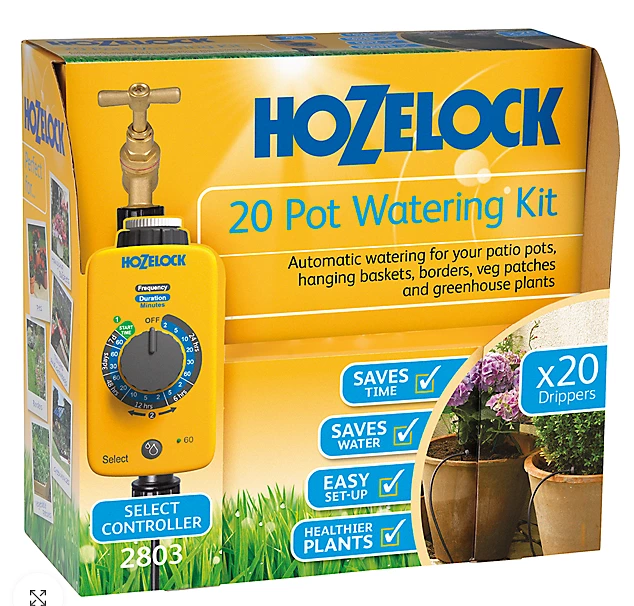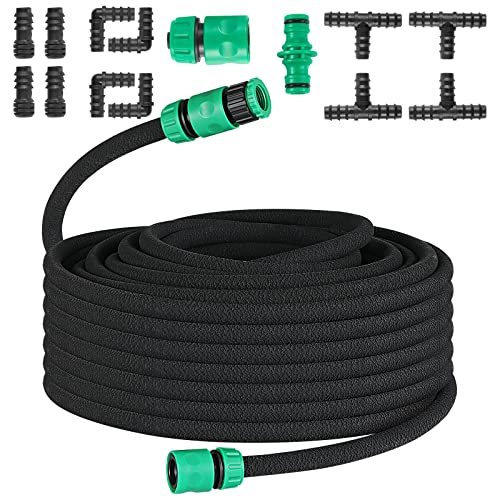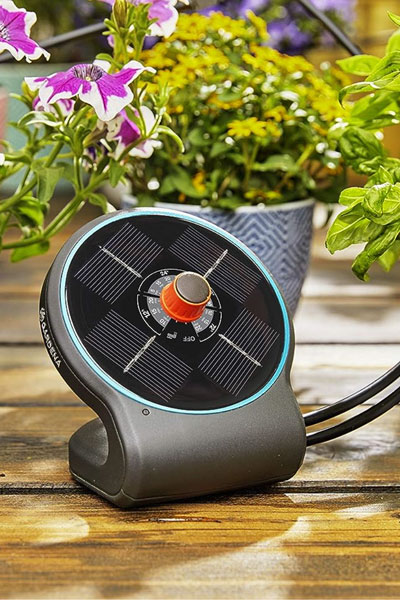Are irrigation systems worth it? Experts reveal just how useful these automated tools can be
Watering doesn't have to be so time-consuming with these tools

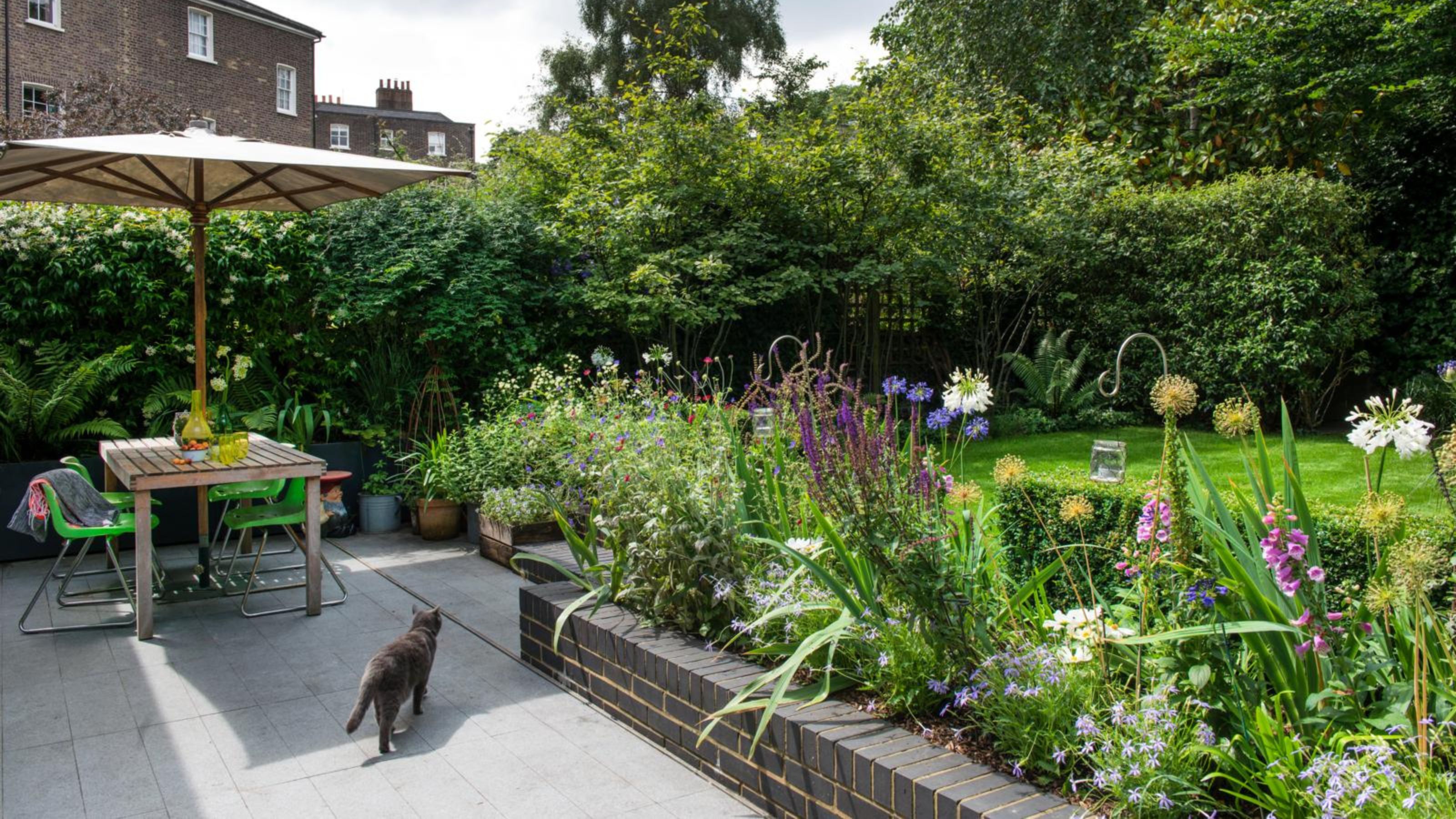
Watering is at the top of most gardeners' to-do lists throughout the summer, but it can also be a time-consuming task. If you're pressed for time, you might be considering self-watering options – but are irrigation systems worth it?
Irrigation systems are a helpful addition to your summer garden ideas and some variations can create a comprehensive slow watering hack for your garden.
'An irrigation system automates watering for your lawn and plants in a more controlled manner as opposed to manual watering,' says James Ewens, gardening expert at Alexander Francis. 'When it’s designed and installed properly, an irrigation system can save you a great deal of time by only delivering water when and where it’s needed most in your garden, and watering your plants in the most efficient way possible.'
We've asked the experts to shed light on the pros and cons of irrigation systems to help you decide whether they're worth the investment.

James Ewens is commercial director of Alexander Francis, and is a self-proclaimed gardening enthusiast. James is passionate about all things to do with nature, gardening and wildlife. He's usually found tending to his own outdoor space.
Our top irrigation system picks
Advantages of irrigation systems
1. They save time
Many irrigation systems slowly release water, keeping your plants topped up so you don't have to.
'If you plan and install your irrigation system before planting, you can save yourself a lot of work and time spent standing around with a hose later,' says the expert team at Harrod Horticultural.
'A soaker hose and drip irrigation are the two best ways to irrigate, and if there’s no significant rainfall, turning on the irrigation system once a week should be enough to keep your vegetables happy until you see the arrival of a good rainfall.'
Sign up to our newsletter for style inspiration, real homes, project and garden advice and shopping know-how
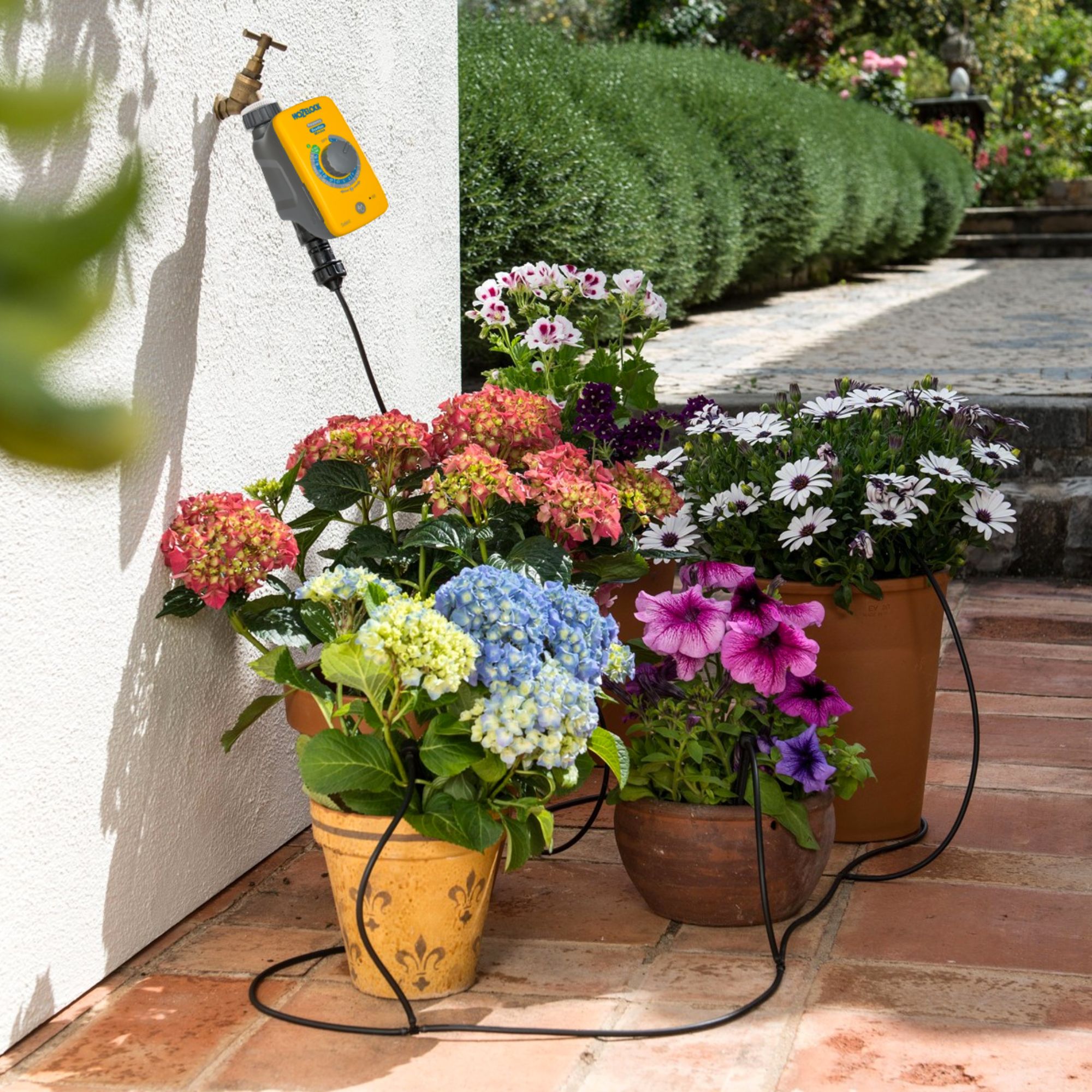
2. There are smart options
Irrigation systems come in a range of smart options that make plant care a breeze. Smart watering systems can calculate how much water your plants need in line with the weather forecast and other environmental factors, and adjust the watering level accordingly.
'One of the most common ways to kill a plant is by underwatering or overwatering,' says Richard Ferguson, international marketing manager at Hozelock UK. 'This can cause many problems and make the plants prone to disease. By ensuring that the plants have the correct amount of water, they will grow stronger and appear more vibrant.
'When it comes to watering, it's not about quantity but more about quality. Automatic watering systems have more control and can deliver water directly to where it needs to be right at the soil level. By doing this, the roots can absorb the water from beneath the soil, which tends to be more effective than watering from above as there is less evaporation from the sun, reducing water wastage as well as leaf scorch.'
So, if you're wondering if you can overwater plants in the summer, these savvy systems can take the mystery away.
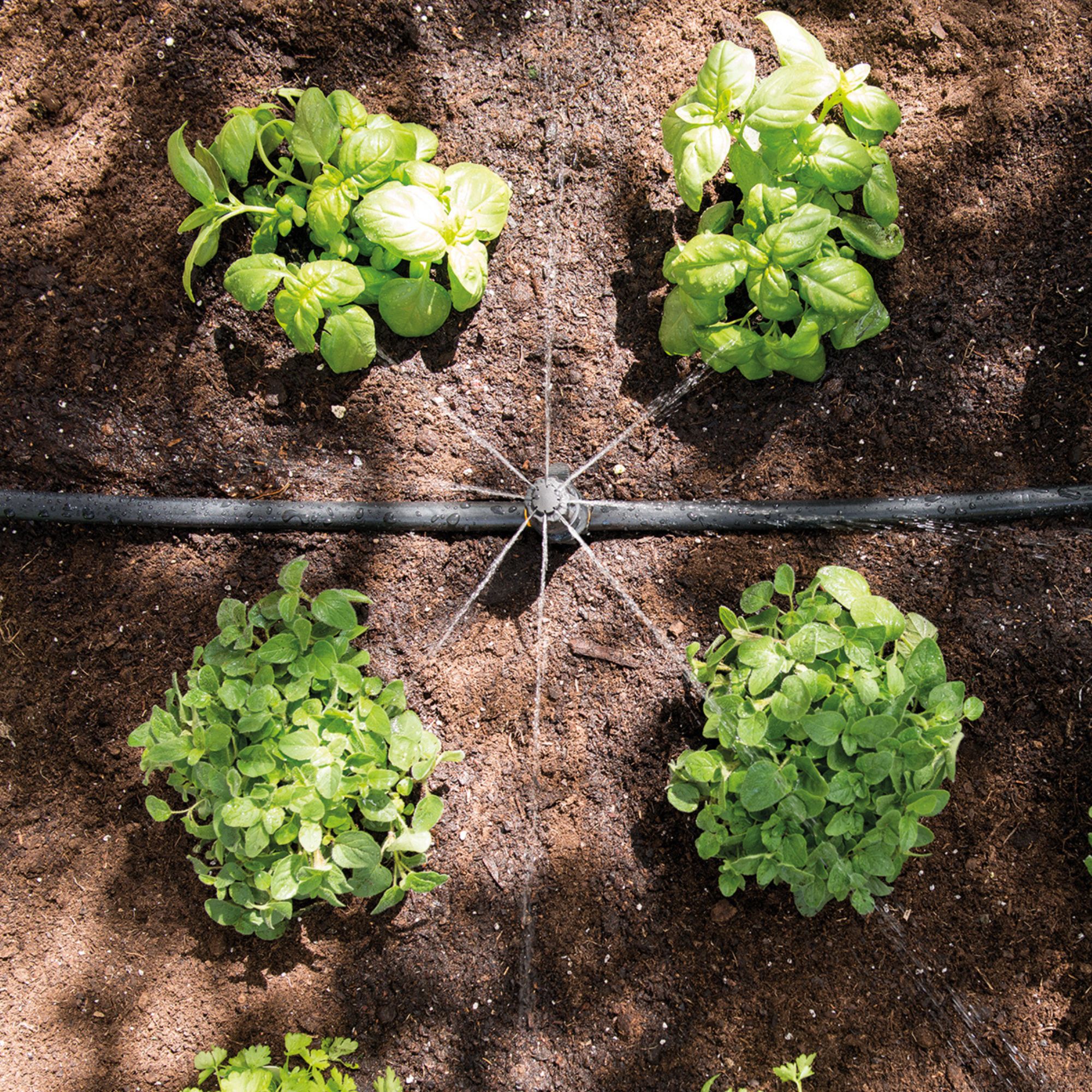
3. Peace of mind while you're on holiday
Some self-watering systems, like drip irrigation or capillary mats, slowly release water directly to the plant roots without you having to lift the watering can.
'Investing in a self-watering system can be particularly beneficial for extended trips,' says Alex Biggart, plant and flower expert at 123 Flowers. 'They provide a consistent moisture level, which is crucial for plant health.'
There are even automatic watering options, like the Hozelock 25 Pot Watering Kit from Amazon. 'Automatic watering can help alleviate the stress of watering if you are away, without having to rely on family, friends, or neighbours,' says Richard from Hozelock. 'With the Hozelock 25 Pot Watering Kit, you can water up to 25 pots on a schedule of once a week, or up to four times a day. The kit includes 16 pre-set programmes which deliver water directly to the roots, giving you peace of mind that your plants will be happy and healthy.'
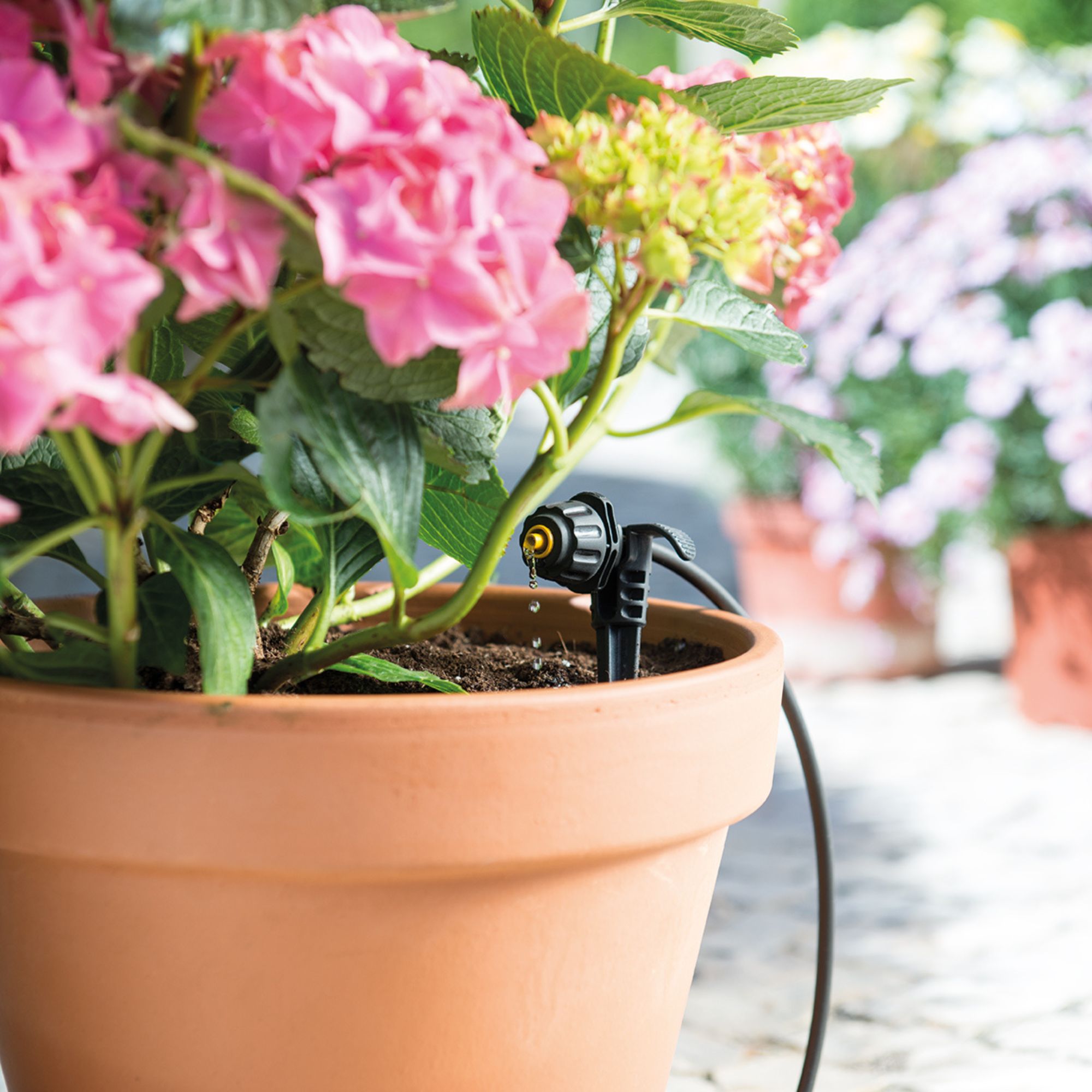
Disadvantages of irrigation systems
1. Costs
The first thing you'll want to consider before investing in an irrigation system is the cost.
'The initial installation can be expensive, especially for bigger gardens that require more complex systems,' says James from Alexander Francis. 'Sprinkler systems also often rely on pumps which consume energy and raise your bills.'
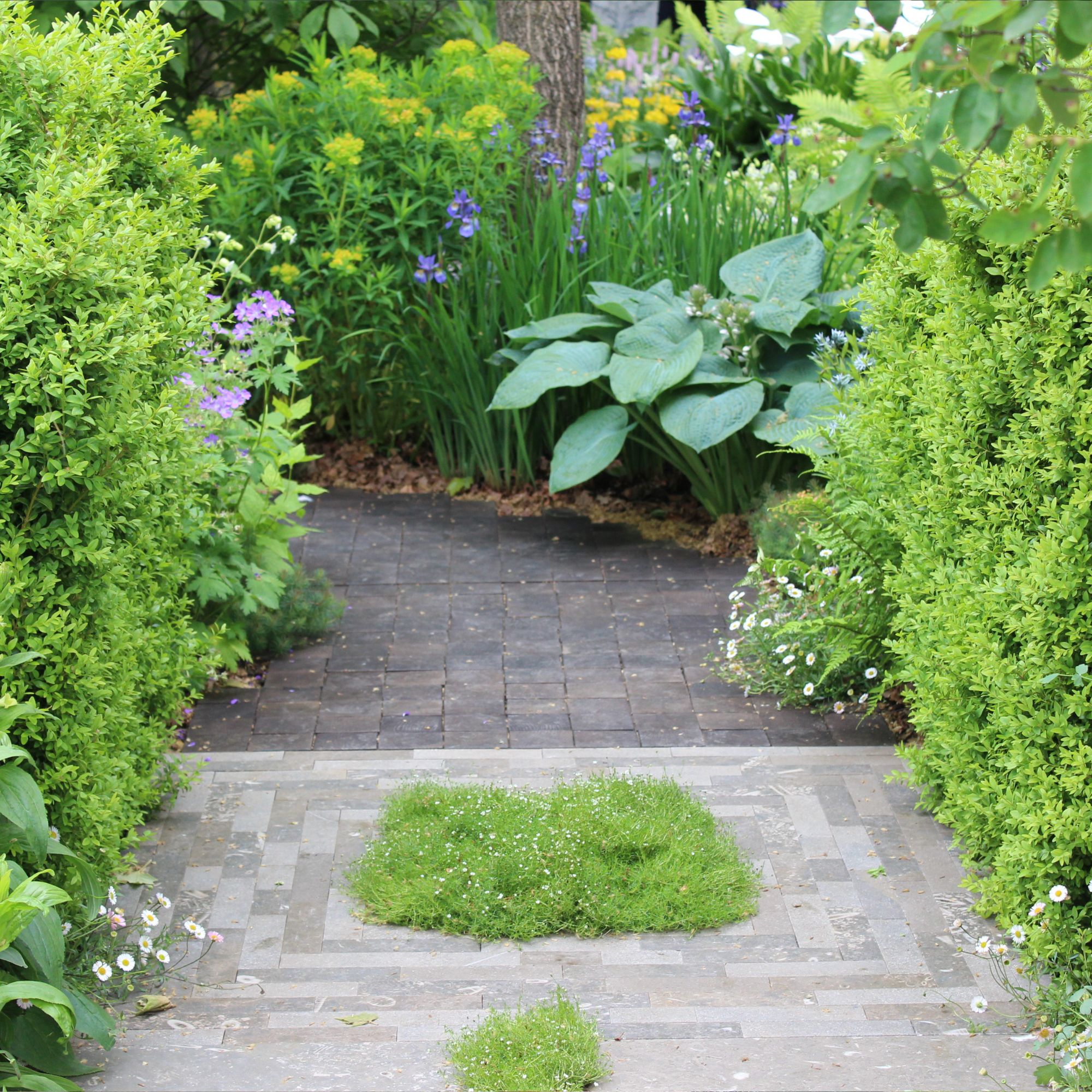
2. Water restrictions
Though you might have mastered our hosepipe ban tips, restrictions can extend to other irrigation systems like sprinklers.
'For watering large areas, a sprinkler is very useful but may require a licence in some areas and beware if you are on a water meter as they are not very efficient and can use up to 1000 litres of excess water a day,' says the expert team at Harrod Horticultural. 'Also, if you have the one sprinkler, then you do have to move it around your various beds during the day to give each one a good soaking.'
3. Ongoing maintenance
While irrigation systems can certainly make life easier when it comes to watering, it's important to keep in mind that they require frequent TLC – especially if you want to avoid unnecessary costs further down the road.
'Irrigation systems require regular maintenance, including cleaning, repairs, and checking for leaks,' says James from Alexander Francis. 'If they’re not properly maintained, they can easily waste water by overwatering your lawn and plants, as well as potentially increasing energy consumption.'
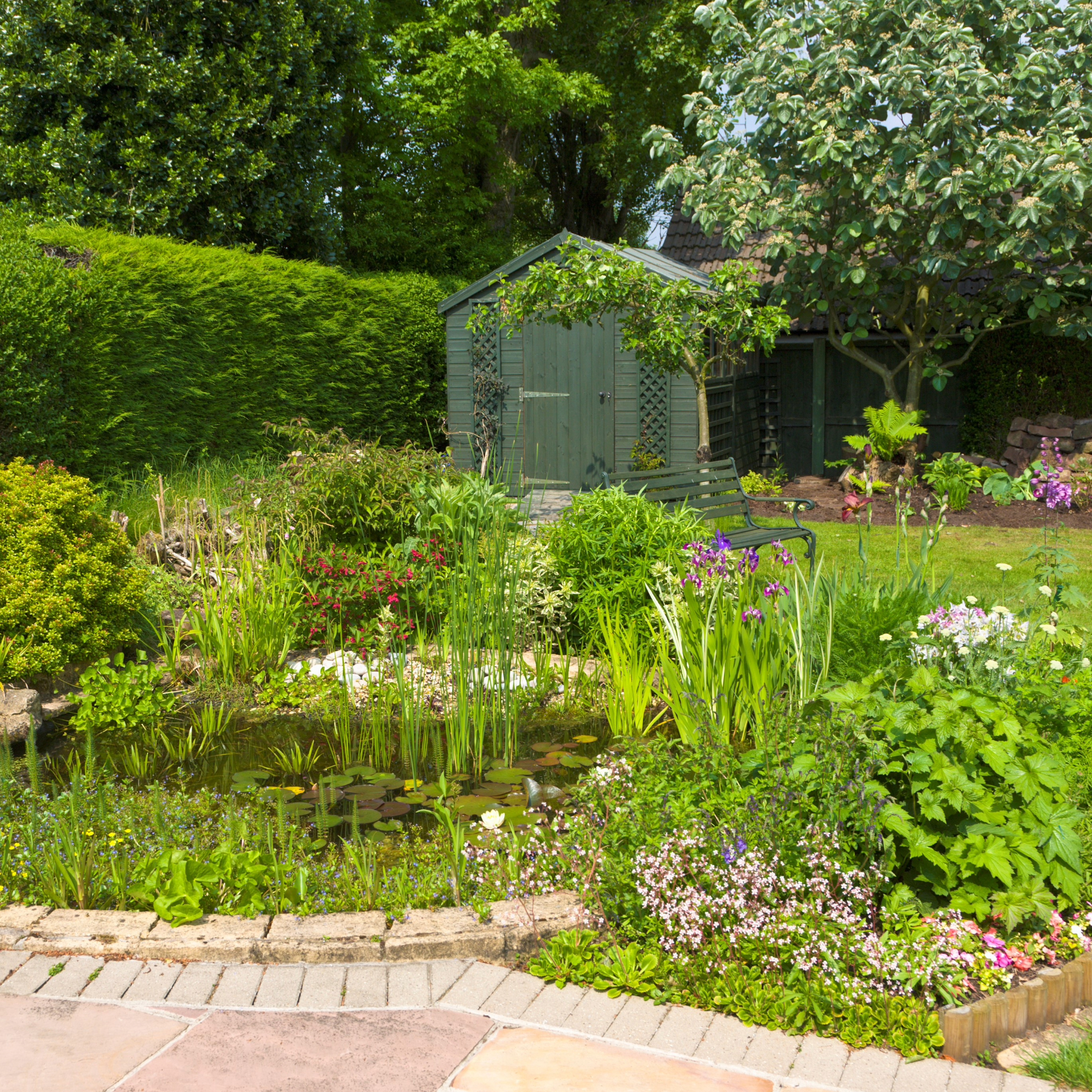
FAQs
Is an irrigation system a good investment?
This all comes down to how much time an irrigation system can save you in the garden – and that largely depends on your garden's size.
'If your garden is on the bigger side and you value water conservation along with wanting a lush landscape, an irrigation system might be a good investment,' says James from Alexander Francis. 'For smaller gardens or those on a tight budget, manual watering will usually be more than enough.'
What are the cons of a sprinkler system?
As well as the costs described above, which could be off-putting to potential buyers, sprinklers can pose a risk to the health of your plants. 'Regular overhead watering can create ideal conditions for fungal diseases to thrive on your plants,' says James from Alexander Francis.
So, what do you think? Are irrigation systems worth it?

Sophie joined the Ideal Home team as Gardens Editor in June 2024. After studying English at Royal Holloway, University of London, she began writing for Grow Your Own, which spurred on her love of gardening. She's tried growing almost every vegetable under the sun, and has a soft spot for roses and dinnerplate dahlias.
As Gardens Editor, Sophie's always on the lookout for the latest garden trend. She loves sharing growing hacks for every space, from herbaceous borders to balconies.
